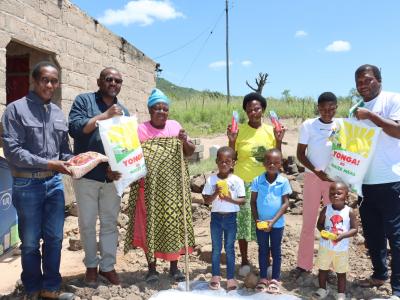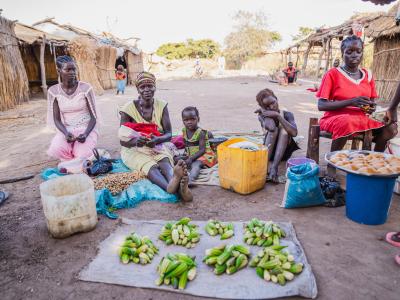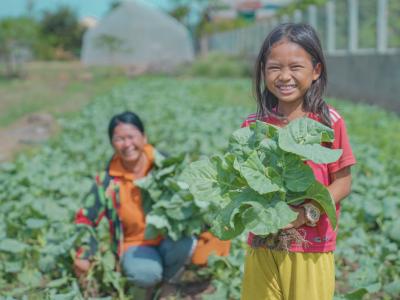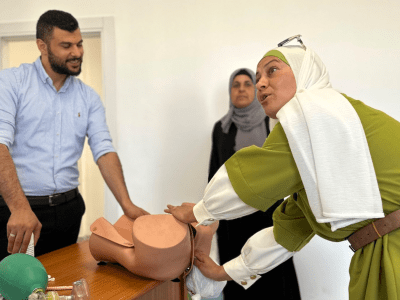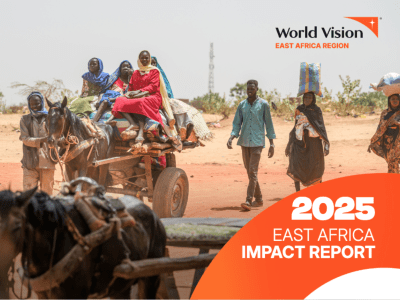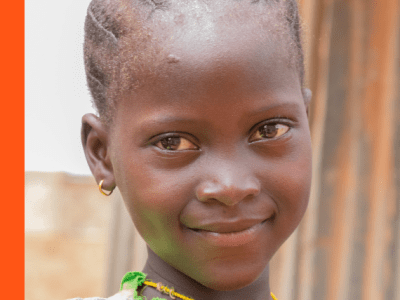opinion / February 23, 2026
What 2026 Could Mean for Children’s Future
Five key risks likely to shape children’s wellbeing in 2026 and the urgency and bold action needed to change the current trajectory.
article / February 10, 2026
Building Resilience Amid Climate Extremes: World Vision Eswatini Engages Affected Families in Mhlangatane
World Vision Eswatini supports families affected by extreme weather while advancing long-term solutions to build resilience and reduce future climate shocks.
opinion / February 26, 2026
With every cut to aid and failure to invest in resilience, the future of South Sudan’s children hangs in the balance
Drawing on first‑hand experience from one of the world’s most fragile contexts, Paul Kinuthia, Senior Director, Food, Cash & Markets, Disaster Management, argues that repeatedly cutting food, health and protection services traps communities in endless crisis.
He makes the case that narrowing aid to short‑term survival is a false economy that drives higher costs, deeper instability and repeated emergencies. The solution, the author provides, is urgent investment in resilience alongside life‑saving aid. This investment should be seen as a credible way to protect children and reduce the need over time.
publication / February 4, 2026
Project Factsheet: Building Climate-Adaptive Solutions through Inclusive Market Networks (BASIN)
Building Climate‑Adaptive Solutions through Inclusive Market Networks (BASIN) is a four‑year regional initiative (2025–2029) funded by Australia’s Department of Foreign Affairs and Trade through the Mekong–Australia Partnership. Implemented by a World Vision–led consortium, the project supports smallholder farmers in Cambodia’s Kratie Province to adapt to climate change through inclusive and climate‑smart agri‑food systems. Focusing on cashew and vegetable value chains, BASIN aims to improve household incomes, strengthen women’s and marginalized groups’ participation and leadership, and generate evidence to inform regional learning and policy dialogue across the Mekong sub‑region.
article / February 19, 2026
Strengthening Emergency Delivery Care in the West Bank: 121 Health Workers Trained Against All Odds
In August 2025, World Vision, in close partnership with the Ministry of Health (MoH), delivered a three‑week Emergency Delivery Training programme, equipping 121 nurses, doctors, and midwives with the skills needed to respond to maternal and newborn emergencies.
publication / February 23, 2026
World Vision East Africa Impact Report 2025
Despite escalating conflict, climate shocks, economic instability and widespread displacement, we reached over 26 million people, including 16.4 million children
publication / February 19, 2026
2025 Impact Report: Burkina Faso
This report provides an overview of the work of World Vision International in Burkina Faso, from October
2024 to September 2025.
